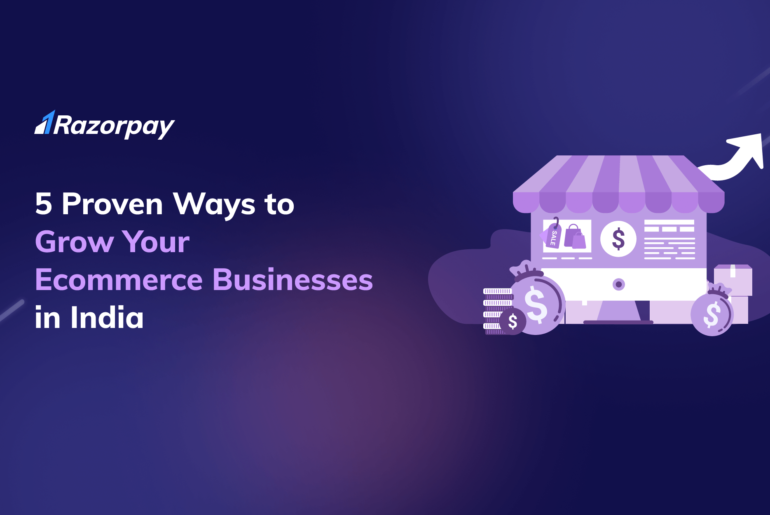Purchase decisions in the pre-internet era were largely dependent on personal recommendations or word-of-mouth (WOM) communication, coming from known connections or immediate community circles. It was practically impossible to collect detailed feedback about the price, performance or features of a product or service without substantial effort.
If insisted by customers, organizations or sellers provided customer references. But, since references directly came from the sellers, they ran the risk of being biased to the seller. The power to manage information largely rested only with brands, giving them the opportunity to easily manipulate it.
However, this situation is no more true. The internet has brought about a paradigm shift in the way products and services are reviewed and compared today; it has created a platform where customers or users collectively wield more power than any brand.
There has been a true democratization of brand building, customers have several online platforms to communicate their opinions or feedback about a product or a service. The internet has made information flow instant and unbiased in today’s time.
Online customer reviews have become so powerful that they not only just trigger sales, they have come to become one of the important sources for building brand perception and value.
For a long time now, brands have tried to effectively trigger customer reviews. And, social media has made the process even easier; reviews which would previously only exist on a brand’s own platforms are now being distributed across several social media channels and forums. Platforms like Facebook, Twitter, Quora, Youtube, etc, are among the first places consumers gather and post brand or product reviews. All this has further lead to power shifting from brands to consumers.
Today, a brand’s credibility, reliability and desirability to a large extent are influenced by customer reviews. Customer reviews come in varied forms, from unboxing videos on Youtube to reviews on e-commerce platforms like Amazon or review sites like Tripadvisor, to personal or professional blogs, to reviews on a brand’s own website.
All this has lead to customers heavily trusting online reviews with a significant number of people considering these reviews as personal recommendations. In fact, according to a survey done by BrightLocal, 84% of people trust online reviews as much as personal recommendations.
The other thing about online reviews is immediacy. The success or the failure of a product or service is almost immediately known by people due to the viral nature of social media and the internet. Whether it is a good product or an average one, news about the same is out on the internet immediately for all to consume and comment upon.
Hence, building products that delight customers and ensuring that the right value proposition is communicated online at all times are of paramount importance today.
Apart from brand perception, online customer reviews also play a crucial role in several business aspects from SEO to website traffic to sales conversions. Let’s have a quick look:
• Improves search engine rankings
Online customer reviews are not only an effective way to understand the pulse of customers, it is also a good way to boost your website’s search engine ranking. Frequent reviews lead to more user generated content leading to more backlinks, fresh & relevant content, and sources for organically shaping natural attributes. Thus, enhancing rankings on search engines.
In addition, user-generated media is a low-effort way to power your site and social media channels with unique, authentic content. According to MOZ’s Local Search Ranking Factors Survey, it is estimated that Review Signals (review quantity, review velocity, review diversity) account for 7% of the total localized organic ranking factors. Here is a visual breakdown of different variables by them:

• Boosts social media engagement and presence
There has been a drastic shift in customer behavior with the emergence of social media and today it is very common for customers to judge a brand based on its coverage and responsiveness on social media channels. Platforms like Facebook, Twitter, Youtube, and Quora play a huge part in building a brand’s persona.
Hence, positive customer reviews can go a long way in paving the way for a solid social media reputation for brands.
For instance, Facebook provides a platform to capture customer reviews and this can be a great platform for local businesses to gather customer reviews and attract more customers. In addition, Facebook provides other metrics like customer responsiveness, which is an indicator of how quickly a brand responds to customer queries.
Social media can also prove to be a great place to run marketing initiatives and improve customer engagement. In such cases, customer reviews can greatly help fine tuning such campaign efforts.
Here is an interesting snippet of how one of our customers tweeted about his experience while integrating with Razorpay:

Such examples not only reiterate our strength in providing stellar customer service but also act as a digital record of a positive customer feedback.
• Opportunity to understand customer feedback
Given that most businesses are online today, face to face or personal interactions with customers have been practically eliminated. This has greatly reduced the opportunity to receive firsthand feedback about your brand’s product or service.
Customer reviews on your website or other review platforms is a good way to understand the pulse of your customers. Review platforms also provide brands the opportunity to address product or service gaps and convert a bad review into a good review. The opportunity to provide good customer service on a public forum helps garner customer trust as well.
• Helps in strengthening a brand’s keyword strategy
Customer reviews describe user experiences, they provide an unbiased look at the language used around your product or service. More often than not your target audience will also use similar language to search for your product.
Hence, turning this information into content will help you attract more traffic through the right keywords. This allows you to go beyond the Google keyword tool and select keywords that your customers are searching for.
Customer reviews are great to nail down your long tail keywords, as consumers usually provide descriptive reviews that explain pros (or cons) of the product which can be very different from the standard product description provided on the website.
• Acts as a platform to build customer loyalty
Most customers today thoroughly research before making a purchase. Reviews on owned websites as well as external websites boost customer confidence and build a sense of trust among customers. Customers who leave reviews take the time to write a review because they trust and believe in the product and the brand.
This indicates a certain loyalty that customers associate with the brand. Engaging with such customers and perhaps even rewarding them for their effort is a good way to grow your brand loyalty and customer base.
It is also very important that brands pay close attention and care towards negative feedback and address them quickly, as it can provide a window of opportunity to convert a dissatisfied customer into a loyal one as well as reiterate that you care. In addition, critical feedback is a good way to understand the real gaps in your products or services.
Customer reviews can come through formal and informal channels, from review sites to social media platforms to even personal feedback via emails. Here is just one of the many emails we receive from happy customers every week:

Wondering how to get customers to review your business online?
Now that we know the importance of customer reviews, attracting customers and convincing them to provide feedback and reviews is not always straightforward. While unsatisfied customers would want to come back to the website and give their feedback, seeking for help, getting satisfied and happy customers to provide reviews needs extra efforts from your organization.
Here are few tips that your business can use to convince customers to provide online reviews:
• Just ask for it
Send personalized emails or messages asking customers as to how they liked the product and what they feel about it. Keep the messaging simple and straightforward – an honest attempt to improve the quality of your products and services.
You can also choose to personally call customers and take their feedback, while this may not directly lead to reviews on your website, you can always request for permission and use the feedback as reviews or testimonials on your website.
Another channel to obtain customer reviews is through your customer support channels like chat platforms or support calls. Your customer support team is the eyes and ears of your organization; they know the most common questions your customers ask and what they have to say about your product or service. Below is a dialogue between our support team and a customer, imagine turning this into a full review:

By the way, do you know at Razorpay it’s mandatory for every employee (including the founders and executive team) to attend to customer support chats for one day every month?
• Genuinely engage with customers
Reviews breed reviews. Hence, in order to increase the number of reviews on your online store or social media platforms, you must genuinely engage with your customers. Ensure that all reviews, both positive and negative are addressed.
Negative reviews most certainly need looking into and should be addressed at the earliest; a good tip is to make basic inquiries and request for the customer’s contact details and address the issue offline. It is commonly seen that standard response messages are used for all online reviews. This should be discouraged, instead, a personalized, tailored response should be used for each and every review.
Many brands hire community managers to engage with customers on public and social media channels. Brands can also run social media campaigns to influence traffic and customer reviews.
Social media can get overwhelming, with many activities happening at the same time that it can get hard to keep a tab on everything. At Razorpay, we have solved this problem by integrating our twitter feed right into Slack, our internal communication platform, making it easier to search and track every mention of our Twitter handles @Razorpay or @RazorpayCare.
• Incentivize customers
While a good service or product boosts loyalty and encourages customers to leave reviews, many times these well-intentioned thoughts are lost and customers forget to write reviews. A good way to turn this situation around is to connect with the customers and incentivize them.
An important aspect here is to ensure that you are unbiased and are only requesting customers for genuine reviews and not just positive reviews.
Incentives could be in two forms (a) social incentives and (b) real tangible rewards like an exclusive offers or early access to products or services. A good example of a social incentive would be how a review site would award loyalty points or gamify the review experience.
Take a look at TripAdvisor, where the review experience has been completely gamified and reviewers are rewarded with badges for reviews written, they even run email campaigns that provide users with performance metrics associated with their reviews, listing the number of viewers or how many reviews away a user might be from obtaining a superior badge:

• Reach out to bloggers
The internet age has given rise to a new crop of brand influencers in bloggers. Blogging has become a mainstream career today and a successful blog is a brand in itself with a large number of trusted followers. Product reviews on blogs range anywhere from simple text reviews to detailed youtube video reviews like unboxing videos or product explainer videos.
Video reviews provide customers with a virtual first-hand experience and have become highly popular today. Several products from mobile phones to apps to beauty products are being reviewed by video bloggers and brands should certainly make an effort to reach out to popular bloggers in relevant domains, send them free samples and request them to review and promote the brand on their blogs and Youtube channels.
Here is an example of how a popular tech blogger reviewed Razorpay on his blog.
• Encourage reviews on review sites
Apart from reviews on the brand owned websites, customer reviews can be collected through a number of ways on a number of platforms from search engine sites like Google, Yahoo or even Youtube to directory sites like Zomato and Practo to social media platforms like Twitter and Facebook.
Wherever possible, brands should set up brand profiles on the relevant platforms in order to ensure brand visibility and encourage customers to provide feedback and reviews. This can also lead to positively impacting a brand’s SEO.
• Make the review process simple
Last but not the least, ensure that your review process is simple, easy and flexible for customers to write their reviews. The review process can include both quantitative and qualitative fields, but ensure that it does not include too many fields, or customers might drop off.
Another easy and effective way to collect online reviews is through platforms like Reviews.io. Reviews.io is a Google trusted 360-degree solution that collects, manages and publishes reviews online at several platforms like Google, Bing, Facebook, and Amazon among others. The solution is also easily manageable through robust APIs and is a great way to increase conversions, build customer trust and visibility.
Online store or website should ensure that it has the right platforms for customers to voice their opinions about their products or services. Customer reviews have become a powerful tool today and all businesses should take the right steps to gather customer feedback, review and address them as well.
Customer reviews apart from having a direct impact on SEO and sales can also act as an important tool to understand actual customer pain points and help in fixing product and service gaps.
Did you find this blog helpful? Subscribe to our blog by adding your email address below. We’ll send you a fortnightly digest of all our best articles.



